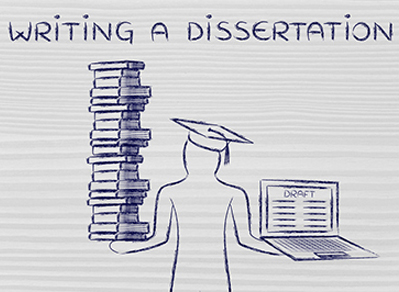
The dissertation has to revised and sometimes rewritten before it can be published as a book. The aim of a book is to communicate ideas, while the purpose of a dissertation is to prove competence in a particular area and academic credentials. Before you begin, assess your material and determine how it can be presented in a more interesting way in the book you are planning to create. Here are some of the key steps involved in converting a dissertation into a book:
- Consider your audience and what they would want to read about
- Focus on the most interesting or important issues or themes from the start
- Present persuasive arguments and interesting aspects of the work immediately to catch the attention of the reader. Leave background information and theoretical discussions for later.
- Discard peripheral material that do not belong in a book, for e.g., cut down on literature review, methodology, citations, quotations, tables, footnotes/endnotes, bibliography, appendices, and excess material. If these need to be included, shift them to the end of the book or summarize them in relevant sections.
- Include: background material, new material, introduction, conclusion and an index.
- Pay attention to your prose style, cut academic jargon, and write in a more personal tone.
It may be necessary to update your research by referring to new articles and books that have appeared on the subject since you finished your dissertation. Incorporate these ideas into your book and revise your bibliography accordingly.
A paper titled “Publishing a Master’s Thesis: A Guide for Novice Authors” published in the Journal of Genetic Counseling in 2010 noted that students who have completed a master’s thesis or equivalent should respond to the “call to publish”. However, the authors found that though most students engage in a scholarly activity with great publication potential, many do not publish their work due to “a combination of time constraints, lack of mentoring and support, unfamiliarity with the publication process, lack of professional confidence, and fear of rejection.”
Publishing promotes personal growth and can lead to employment opportunities, research funding, and career advancement. Students should be given all the support they need. Mentoring and instructional support is important to give them the confidence to produce good dissertations and publish them.



